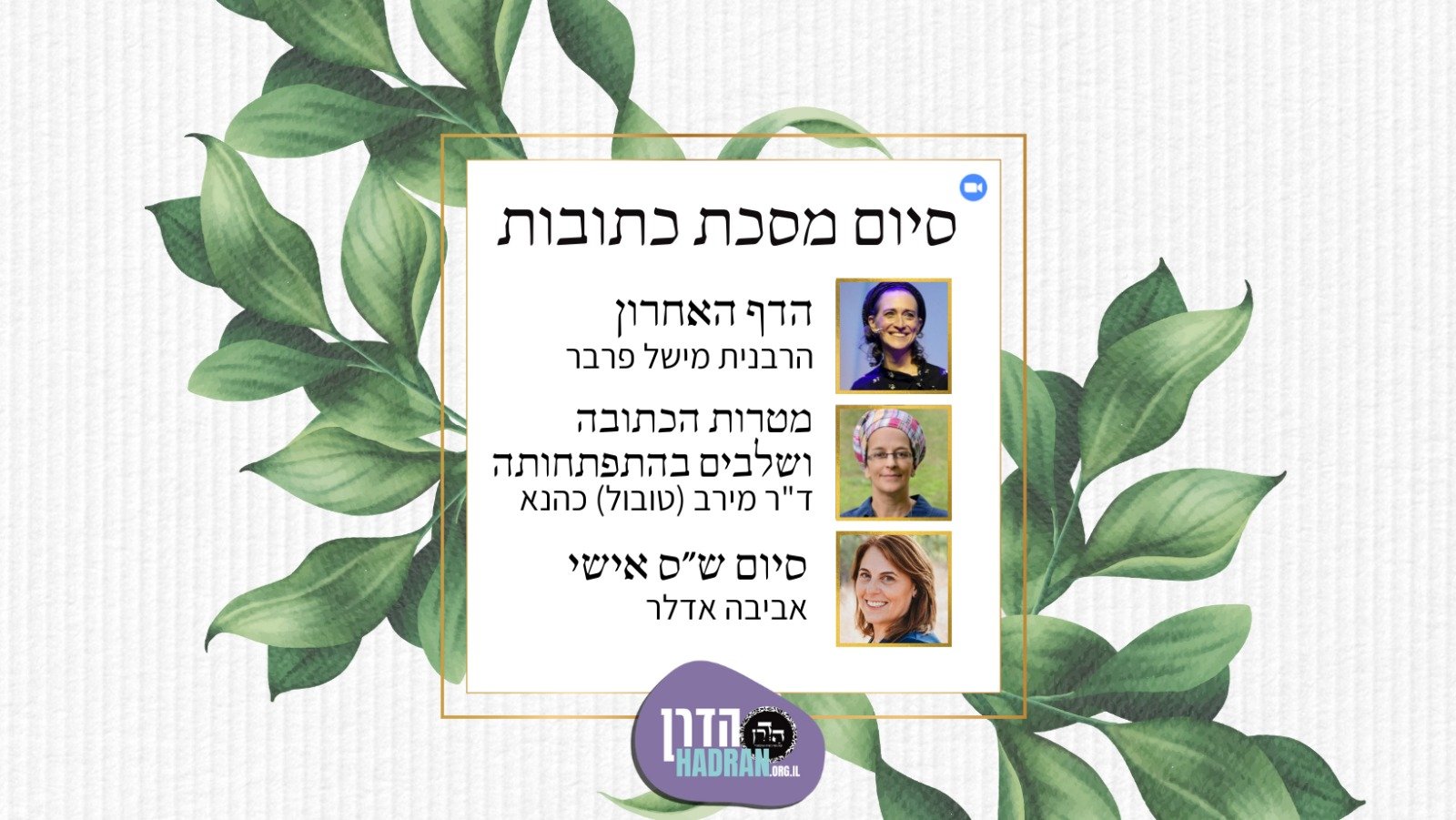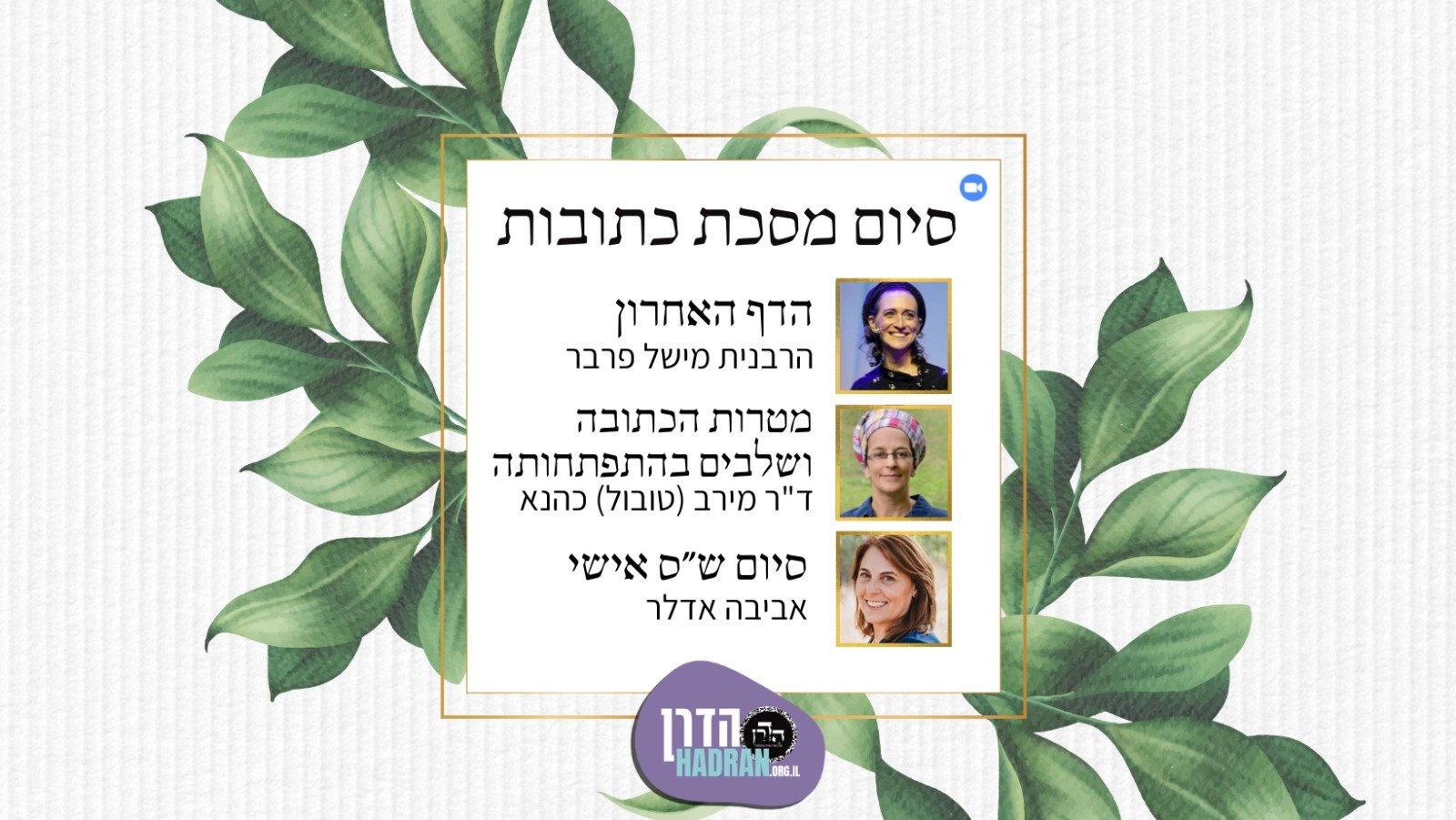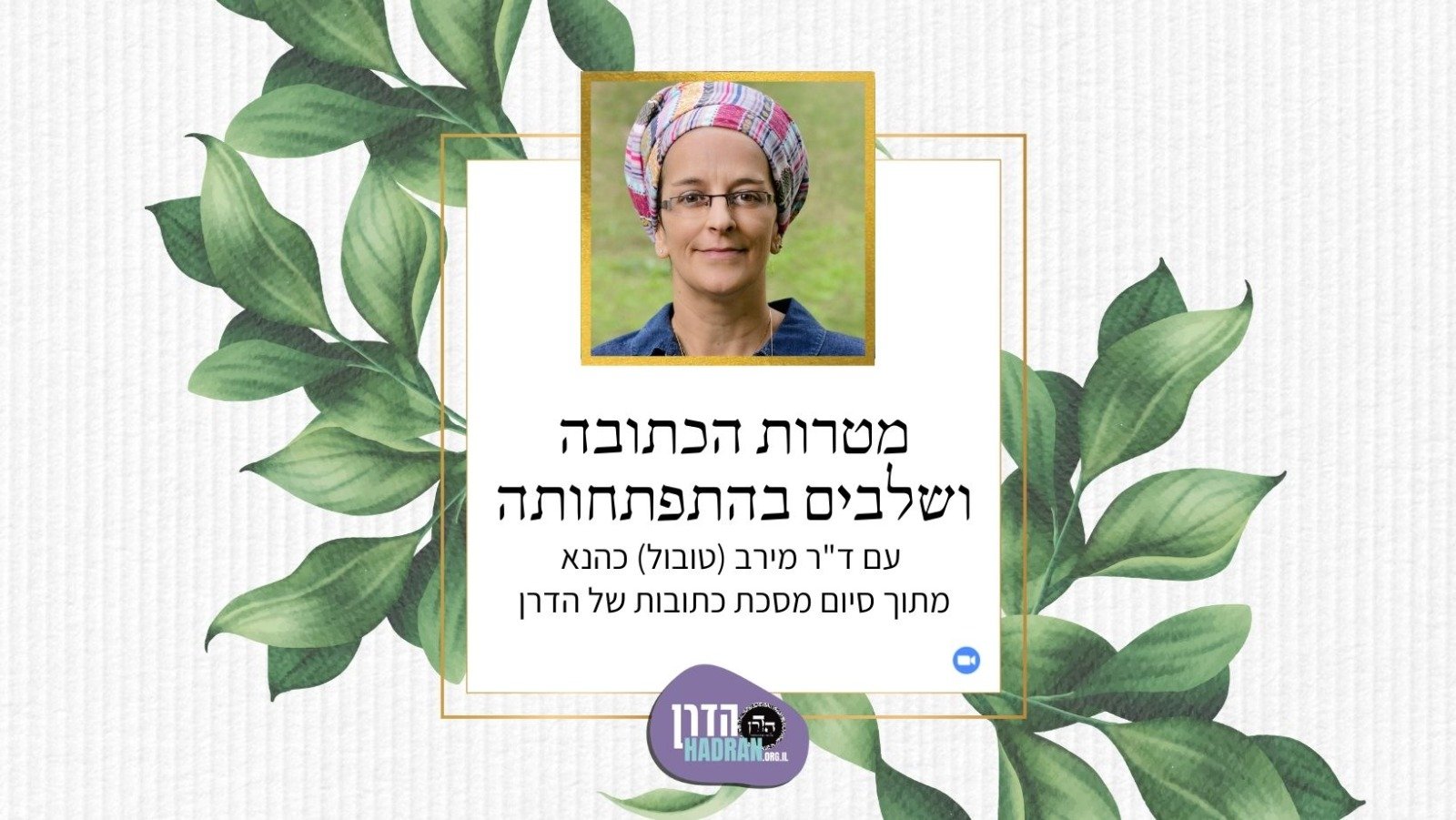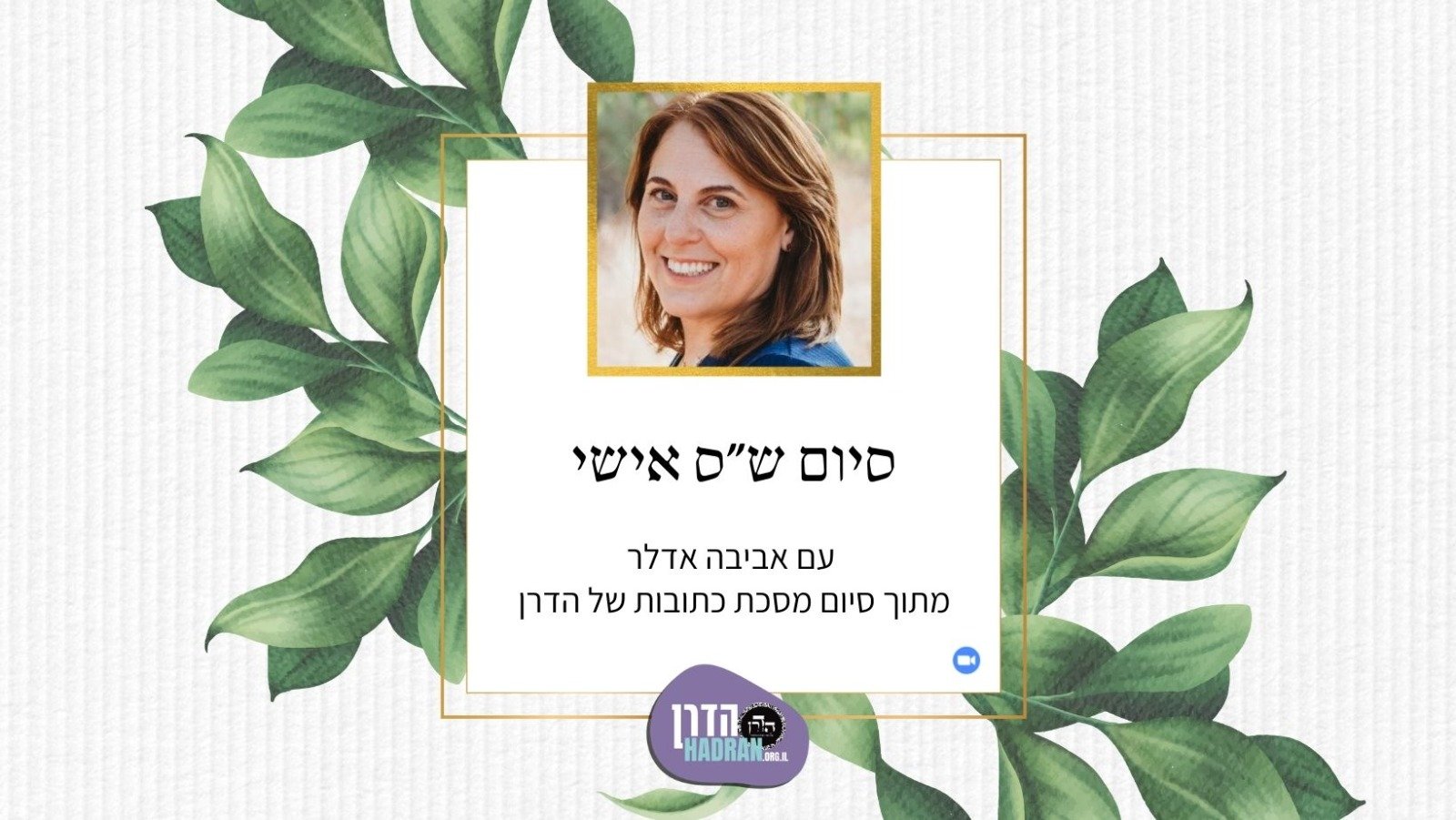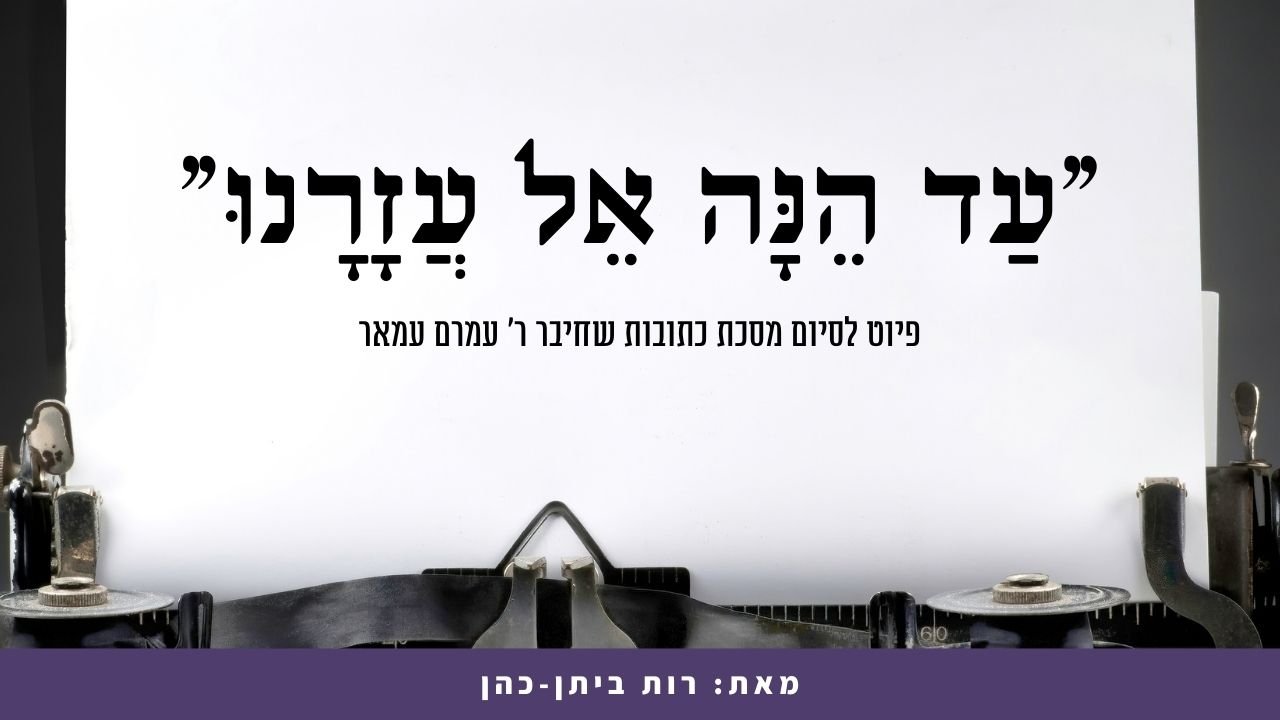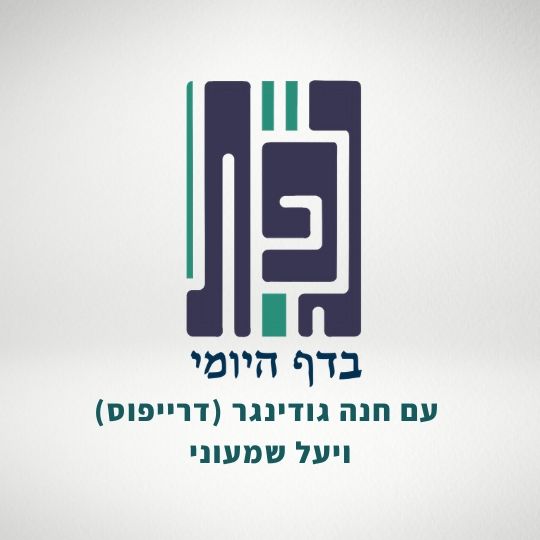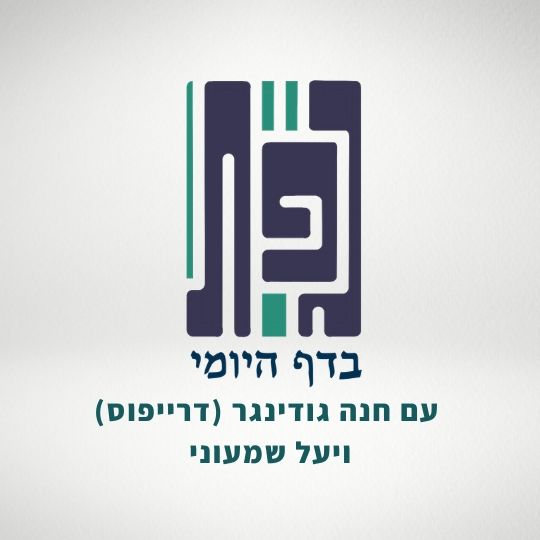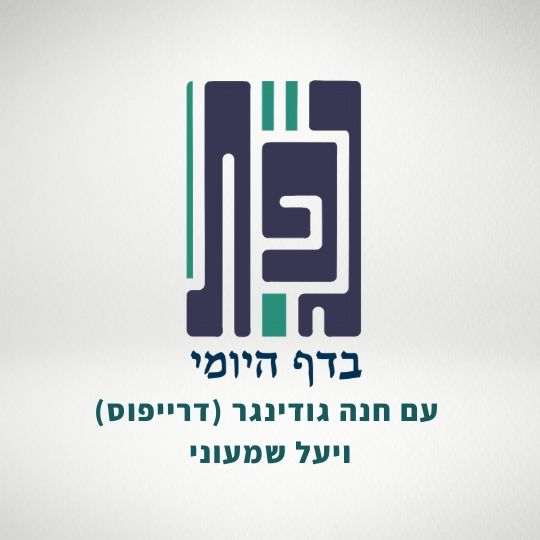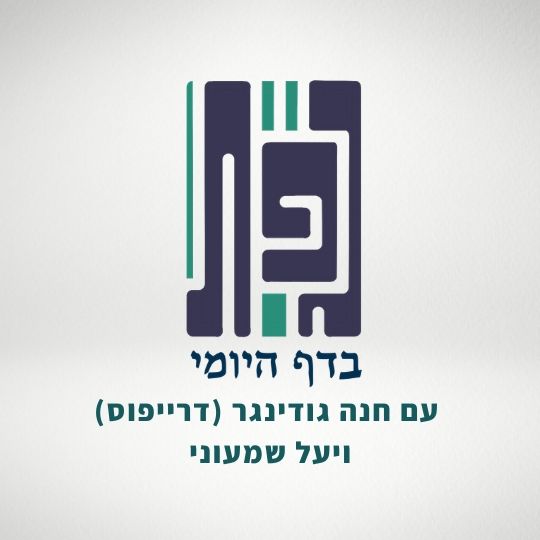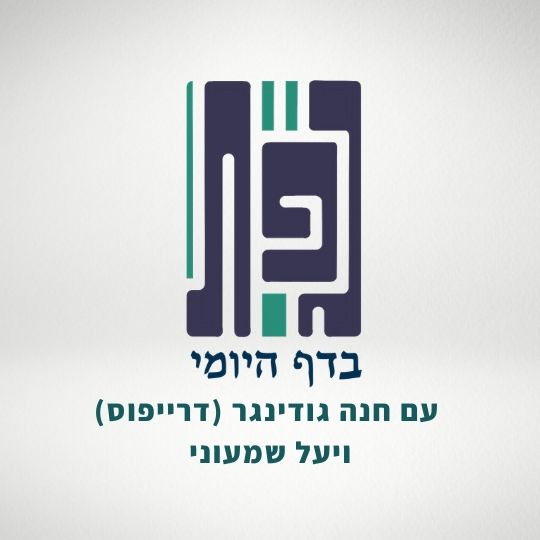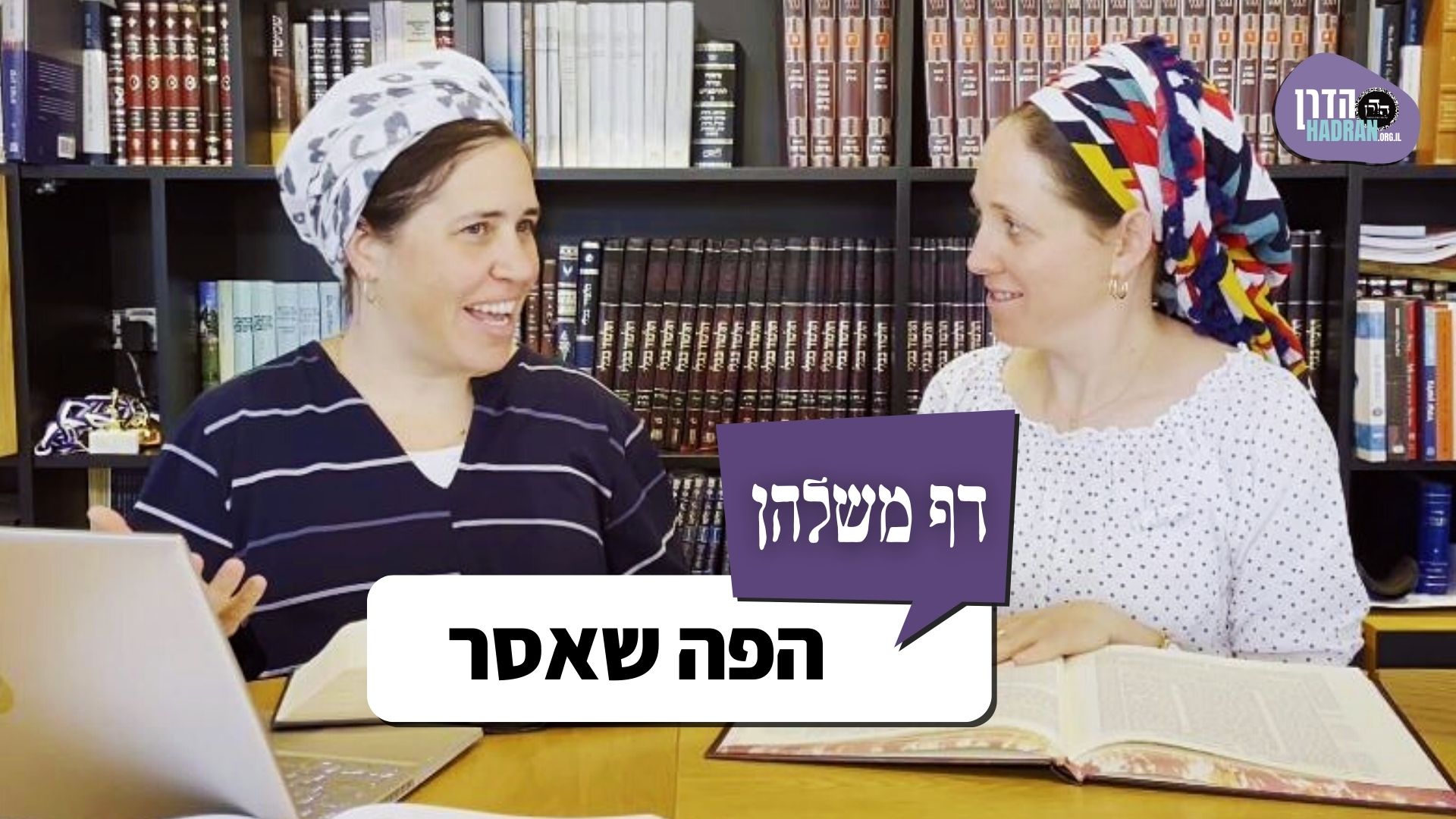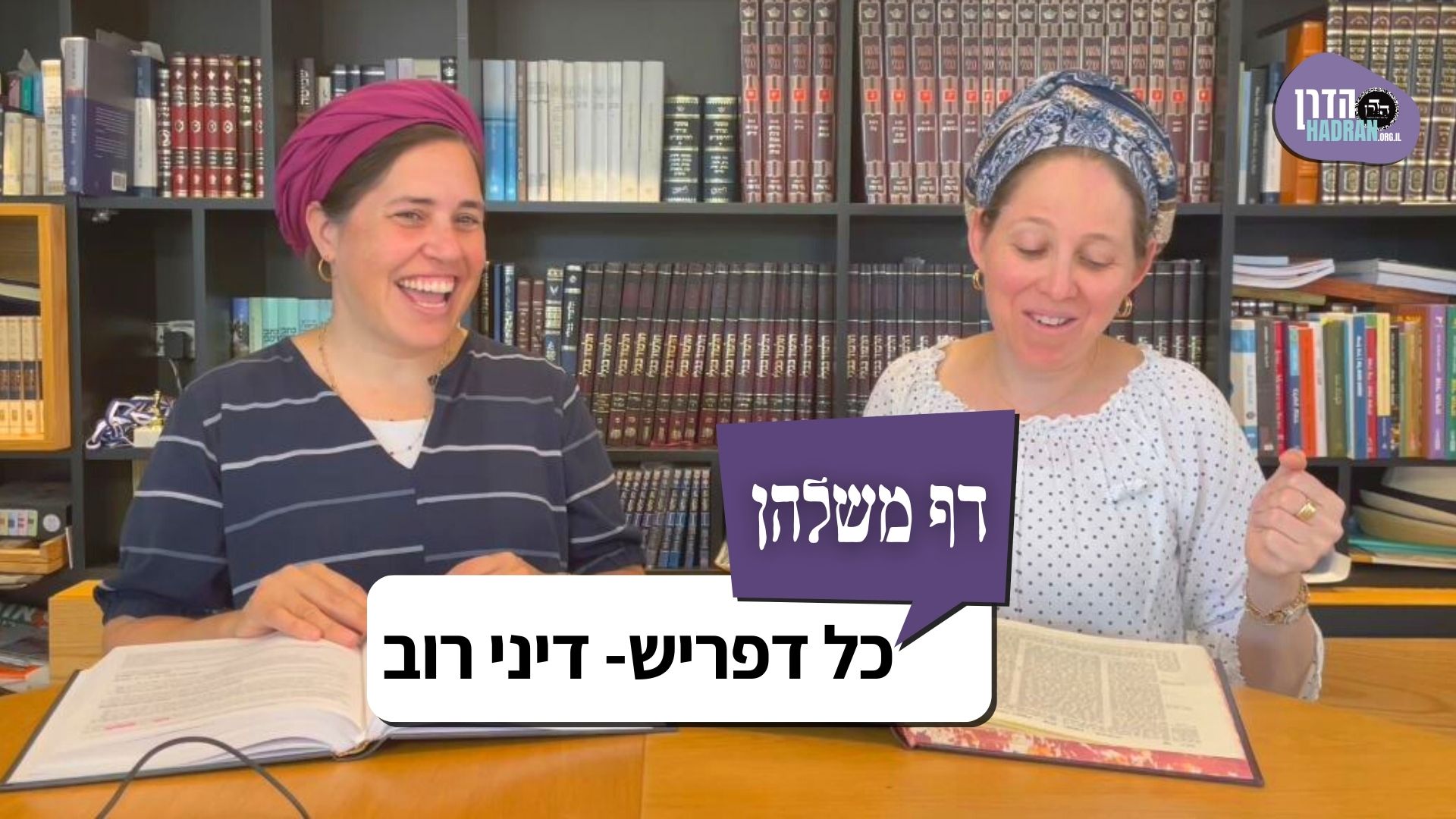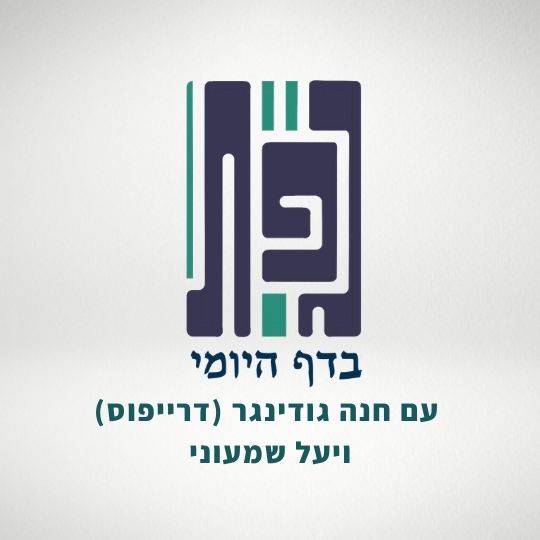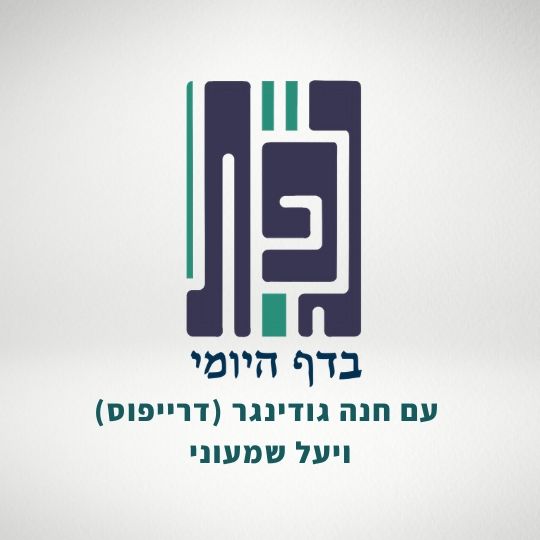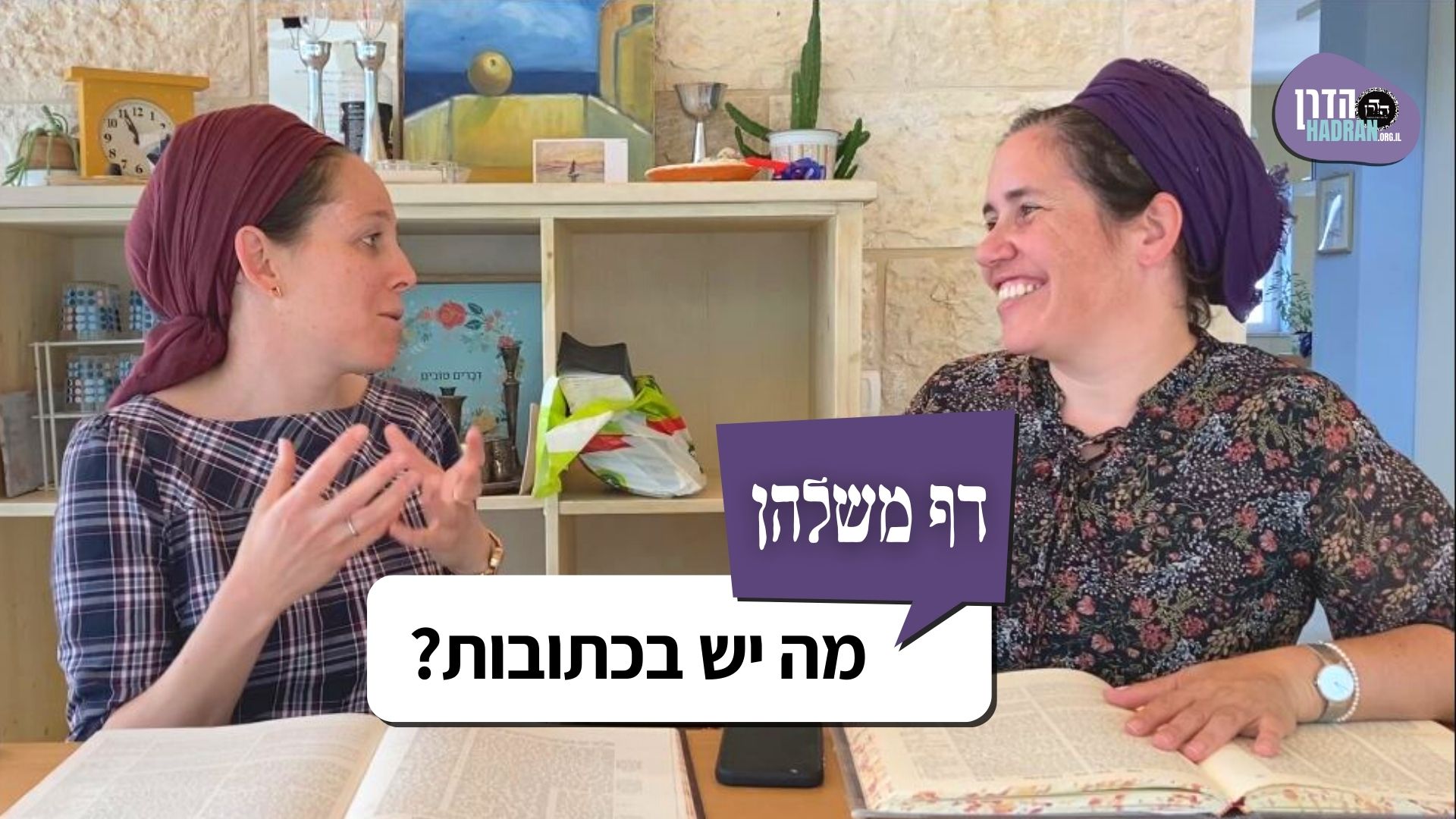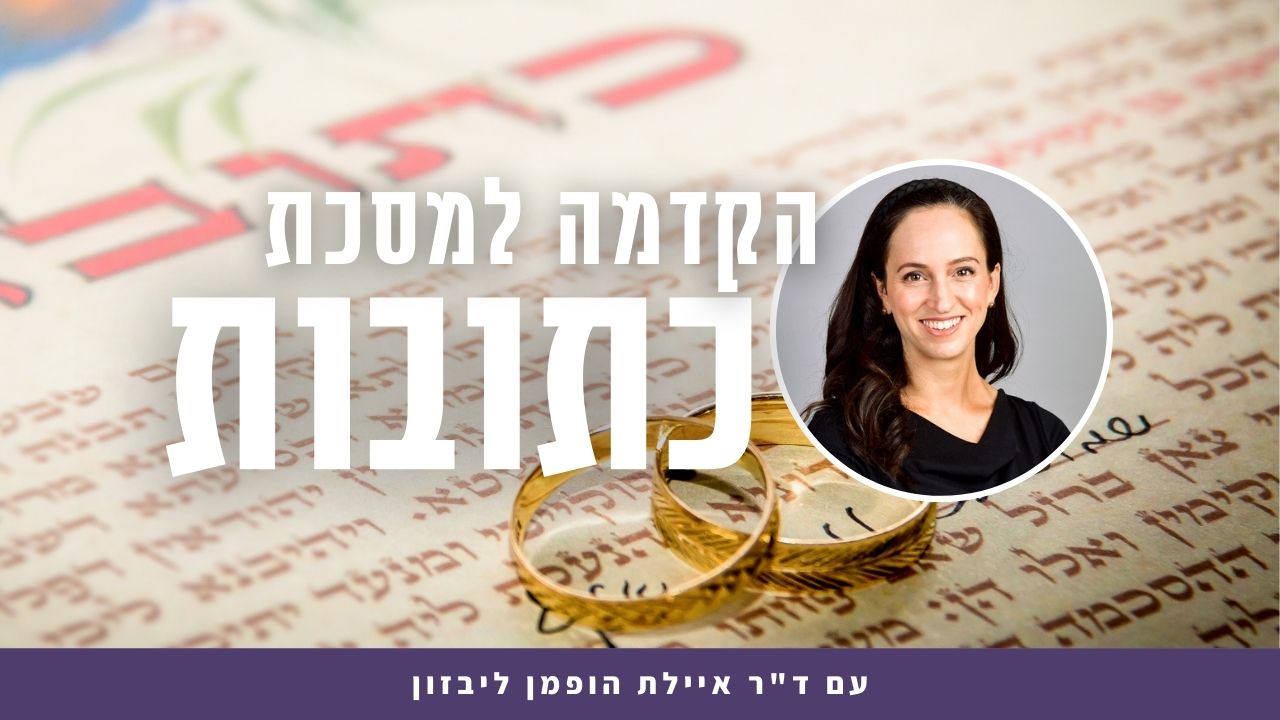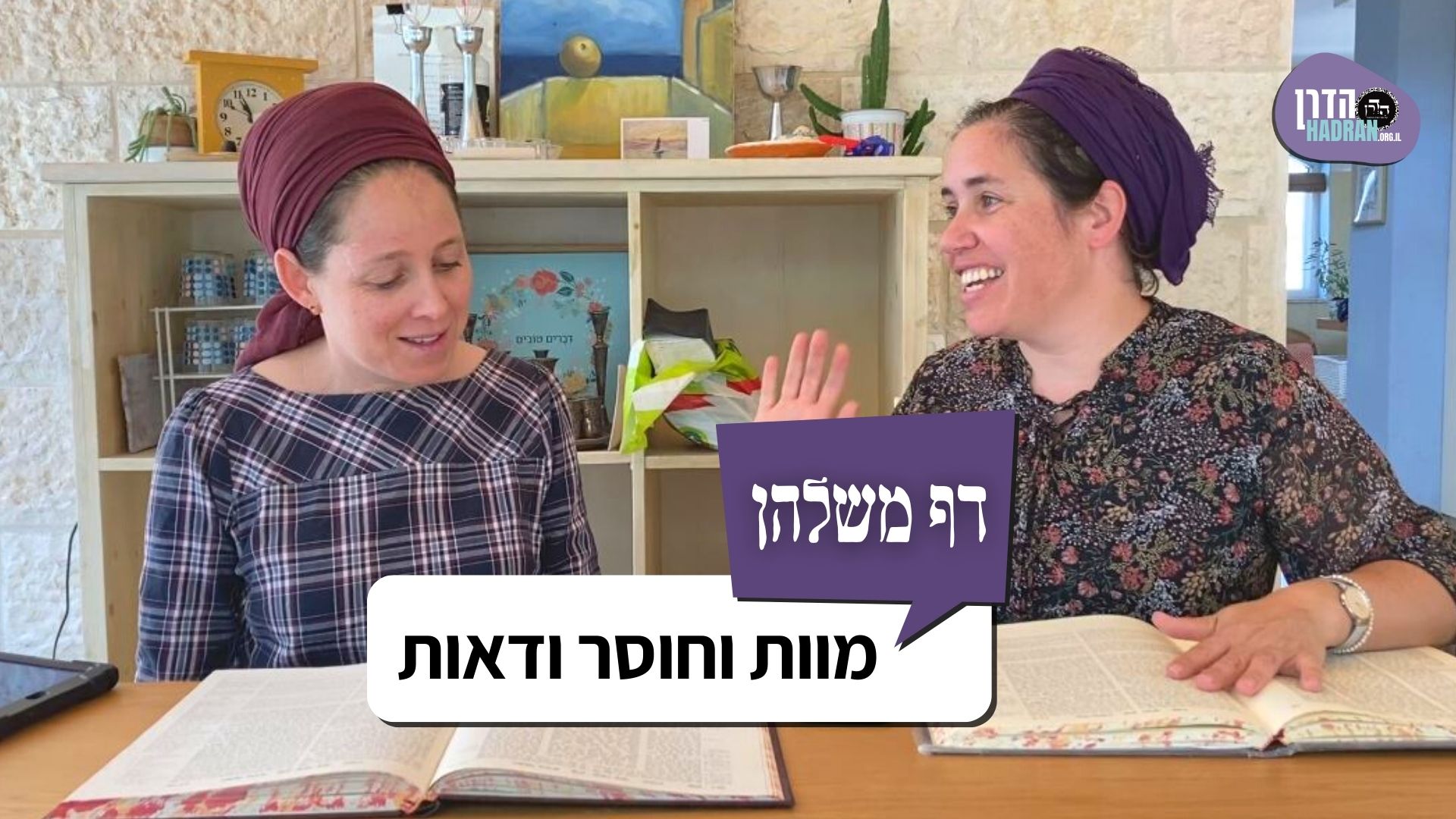כתובות ה
מִשּׁוּם חֶשְׁבּוֹנוֹת.
It is due to calculations performed on Shabbat to prepare for the wedding. He would thereby engage in weekday matters on Shabbat.
אֲמַר לֵיהּ אַבָּיֵי: וְחֶשְׁבּוֹנוֹת שֶׁל מִצְוָה מִי אֲסִירִי? וְהָא רַב חִסְדָּא וְרַב הַמְנוּנָא דְּאָמְרִי תַּרְוַיְיהוּ: חֶשְׁבּוֹנוֹת שֶׁל מִצְוָה מוּתָּר לְחַשְּׁבָן בְּשַׁבָּת! וְאָמַר רַבִּי אֶלְעָזָר: פּוֹסְקִין צְדָקָה לַעֲנִיִּים בְּשַׁבָּת! וְאָמַר רַבִּי יַעֲקֹב אָמַר רַבִּי יוֹחָנָן: הוֹלְכִין לְבָתֵּי כְנֵסִיּוֹת וּלְבָתֵּי מִדְרָשׁוֹת לְפַקֵּחַ עַל עִסְקֵי רַבִּים בְּשַׁבָּת. וְאָמַר רַבִּי יַעֲקֹב בַּר אִידֵּי אָמַר רַבִּי יוֹחָנָן: מְפַקְּחִין פִּיקּוּחַ נֶפֶשׁ בְּשַׁבָּת.
Abaye said to him: And are calculations for a mitzva prohibited on Shabbat? But wasn’t it Rav Ḥisda and Rav Hamnuna who both said: With regard to calculations for a mitzva, it is permitted to reckon them on Shabbat? And Rabbi Elazar said: One may allocate charity to the poor on Shabbat. And Rabbi Ya’akov said that Rabbi Yoḥanan said: One goes to synagogues and study halls to supervise matters affecting the multitudes on Shabbat. And Rabbi Ya’akov bar Idi said that Rabbi Yoḥanan said: One supervises matters of saving a life on Shabbat.
וְאָמַר רַב שְׁמוּאֵל בַּר נַחְמָנִי אָמַר רַבִּי יוֹנָתָן: הוֹלְכִין לְטֵרַטְיָיאוֹת וּלְקִרְקְיָיאוֹת לְפַקֵּחַ עַל עִסְקֵי רַבִּים בְּשַׁבָּת. וְתָנָא דְּבֵי מְנַשְּׁיָא: מְשַׁדְּכִין עַל הַתִּינוֹקֶת לֵיאָרֵס בְּשַׁבָּת, וְעַל הַתִּינוֹק לְלַמְּדוֹ סֵפֶר וּלְלַמְּדוֹ אוּמָּנוּת.
And Rabbi Shmuel bar Naḥmani said that Rabbi Yonatan said: One goes to theaters [tartiyyaot] and circuses [karkiyyaot] to supervise matters affecting the multitudes on Shabbat, because the fate of the Jewish people or of individual Jews is often decided there and one’s presence could prevent calamity. And the Sage of the school of Menashya taught: One makes matches [meshadkhin] among the families concerned for a young girl to be betrothed on Shabbat, and similarly one may make arrangements for a young boy to teach him Torah and to teach him a craft. Apparently, calculations for a mitzva may be reckoned on Shabbat, including calculations for a wedding. Therefore, this cannot be the reason for the prohibition against marrying at the conclusion of Shabbat.
אֶלָּא, אָמַר רַבִּי זֵירָא: גְּזֵירָה שֶׁמָּא יִשְׁחוֹט בֶּן עוֹף. אֲמַר לֵיהּ אַבָּיֵי: אֶלָּא מֵעַתָּה, יוֹם הַכִּפּוּרִים שֶׁחָל לִהְיוֹת בְּשֵׁנִי בְּשַׁבָּת יִדָּחֶה, גְּזֵירָה שֶׁמָּא יִשְׁחוֹט בֶּן עוֹף! הָתָם דִּלְנַפְשֵׁיהּ — לָא טְרִיד, הָכָא דְּלַאֲחֵרִים — טְרִיד. אִי נָמֵי: הָתָם אִית לֵיהּ רַוְוחָא, הָכָא לֵית לֵיהּ רַוְוחָא.
Rather, Rabbi Zeira said: It is a decree lest one slaughter a young fowl on Shabbat, due to his preoccupation with the preparations for that night’s wedding feast. Abaye said to him: If that is so, Yom Kippur that occurs on Monday should be postponed when fixing the calendar, due to a decree lest one slaughter a young fowl on Shabbat for the meal on Yom Kippur eve, which is a mitzva. The Gemara distinguishes between the cases. There, with regard to Yom Kippur eve, when one is preparing a meal for himself, he is not preoccupied, and he will not overlook the fact that it is Shabbat. Here, in the case of a wedding, one is preparing a meal for others and is preoccupied. Alternatively, there, on Yom Kippur eve, he has an interval of time during which he can slaughter the bird, as the mitzva is to eat the meal on Yom Kippur eve the next day. Here, he does not have an interval of time, because the wedding and the feast take place at night at the conclusion of Shabbat.
הַשְׁתָּא דְּאָתֵית לְהָכִי, עֶרֶב שַׁבָּת נָמֵי — גְּזֵירָה שֶׁמָּא יִשְׁחוֹט בֶּן עוֹף.
The Gemara says: Now that we have come to this understanding of the prohibition against marrying at the conclusion of Shabbat, the prohibition not to engage in sexual intercourse on Shabbat evening, too, is not due to the intercourse. Rather, it is a decree lest one slaughter a young fowl for the wedding feast.
אִיבַּעְיָא לְהוּ: בְּתוּלָה נִשֵּׂאת בָּרְבִיעִי וְנִבְעֶלֶת בָּרְבִיעִי, וְלָא חָיְישִׁינַן לְאִיקָּרוֹרֵי דַעְתָּא, אוֹ דִלְמָא: בְּתוּלָה נִשֵּׂאת בָּרְבִיעִי וְנִבְעֶלֶת בַּחֲמִישִׁי, דְּחָיְישִׁינַן לְאִיקָּרוֹרֵי דַעְתָּא.
§ The Gemara raises a dilemma: Is a virgin married on Wednesday and does she engage in intercourse on that Wednesday, and we are not concerned lest his resolve to take his bride to court upon discovering that she was not a virgin cool overnight? Rather, he will certainly go to court the next morning. Or perhaps, a virgin is married on Wednesday but engages in intercourse on Thursday, as we are concerned that his resolve will cool.
תָּא שְׁמַע, דְּתָנֵי בַּר קַפָּרָא: בְּתוּלָה נִשֵּׂאת בָּרְבִיעִי וְנִבְעֶלֶת בַּחֲמִישִׁי, הוֹאִיל וְנֶאֶמְרָה בּוֹ בְּרָכָה לַדָּגִים. אַלְמָנָה נִשֵּׂאת בַּחֲמִישִׁי וְנִבְעֶלֶת בַּשִּׁשִּׁי — הוֹאִיל וְנֶאֶמְרָה בּוֹ בְּרָכָה לָאָדָם. טַעְמָא מִשּׁוּם בְּרָכָה, אֲבָל מִשּׁוּם אִיקָּרוֹרֵי דַעְתָּא — לָא חָיְישִׁינַן.
Come and hear proof, as bar Kappara taught: A virgin is married on Wednesday and engages in intercourse on Thursday, since the blessing to the fish: Be fruitful and multiply, was stated on the fifth day of Creation. A widow is married on Thursday and engages in intercourse on Friday, since the blessing of procreation was stated to man on the sixth day of Creation. It may be inferred that the reason is due to the blessing, but with regard to the possibility lest his resolve cool, we are not concerned.
אִי הָכִי, אַלְמָנָה נָמֵי תִּיבָּעֵל בַּחֲמִישִׁי, הוֹאִיל וְנֶאֶמְרָה בּוֹ בְּרָכָה לַדָּגִים! בְּרָכָה דְאָדָם עֲדִיפָא לֵיהּ.
The Gemara asks: If so, a widow should also engage in intercourse on Thursday, since the blessing to the fish was stated then. The Gemara answers: Since there is the option to postpone engaging in relations to the day on which the blessing of man was stated, doing so is preferable for him.
וְאִי נָמֵי: מִשּׁוּם שָׁקְדוּ. דְּתַנְיָא: מִפְּנֵי מָה אָמְרוּ אַלְמָנָה נִשֵּׂאת בַּחֲמִישִׁי וְנִבְעֶלֶת בַּשִּׁשִּׁי? שֶׁאִם אַתָּה אוֹמֵר תִּיבָּעֵל בַּחֲמִישִׁי, לְמָחָר מַשְׁכִּים לְאוּמָּנֻתוֹ וְהוֹלֵךְ לוֹ. שָׁקְדוּ חֲכָמִים עַל תַּקָּנַת בְּנוֹת יִשְׂרָאֵל, שֶׁיְּהֵא שָׂמֵחַ עִמָּהּ שְׁלֹשָׁה יָמִים: חֲמִישִׁי בְּשַׁבָּת, וְעֶרֶב שַׁבָּת, וְשַׁבָּת.
Alternatively, that day was established as the day for a widow to engage in sexual relations due to the fact that the Sages were assiduous in seeing to the well-being of Jewish women, as it is taught in a baraita: Why did the Sages say that a widow is married on Thursday and engages in intercourse on Friday? It is because if you say that she should engage in intercourse on Thursday, on the next day the groom will go to ply his craft early and leave his wife alone. When a man marries a widow, there is no observance of the seven days of rejoicing, whose legal status is like that of a Festival, during which he does not go to work. Therefore, the Sages were assiduous in seeing to the well-being of Jewish women and ensured that the groom rejoice with her for three days: Thursday, the day of the wedding; and Shabbat eve, the day when they engage in sexual relations; and Shabbat.
מַאי אִיכָּא בֵּין ״בְּרָכָה״ לְ״שָׁקְדוּ״? אִיכָּא בֵּינַיְיהוּ אָדָם בָּטֵל. אִי נָמֵי: יוֹם טוֹב שֶׁחָל לִהְיוֹת בְּעֶרֶב שַׁבָּת.
What practical difference is there between the two reasons given to engage in relations on Friday, i.e., the blessing of procreation for man and the fact that the Sages were assiduous? The Gemara answers: There is a practical difference between them in the case of an idle person, who has no job, in which case the reason of blessing applies and the reason that the Sages were assiduous does not, as no matter what he will not go to work early. Alternatively, there is a practical difference in the case of a Festival that occurs on Shabbat eve. There too, the reason of blessing applies but the Sages’ assiduousness does not apply, as one does not work on a Festival.
דָּרַשׁ בַּר קַפָּרָא: גְּדוֹלִים מַעֲשֵׂה צַדִּיקִים יוֹתֵר מִמַּעֲשֵׂה שָׁמַיִם וָאָרֶץ, דְּאִילּוּ בְּמַעֲשֵׂה שָׁמַיִם וָאָרֶץ כְּתִיב: ״אַף יָדִי יָסְדָה אֶרֶץ וִימִינִי טִפְּחָה שָׁמָיִם״, וְאִלּוּ בְּמַעֲשֵׂה יְדֵיהֶם שֶׁל צַדִּיקִים כְּתִיב: ״מָכוֹן לְשִׁבְתְּךָ פָּעַלְתָּ ה׳ מִקְּדָשׁ אֲדֹנָי כּוֹנְנוּ יָדֶיךָ״.
§ The Gemara cites additional aggadic statements of bar Kappara. Bar Kappara taught: The handiwork of the righteous is greater than the creation of heaven and earth, as with regard to the creation of heaven and earth it is written: “My hand also has laid the foundation of the earth, and My right hand has spanned the heavens” (Isaiah 48:13). There, hand is written in the singular. Whereas with regard to the handiwork of the righteous it is written: “The place which You have made for Yourself to dwell in, Lord, the Sanctuary, Lord, which your hands have established” (Exodus 15:17). The reference is to the Temple, which is the handiwork of man, and hand is written in the plural.
הֵשִׁיב בַּבְלִי אֶחָד, וְרַבִּי חִיָּיא שְׁמוֹ: ״וְיַבֶּשֶׁת יָדָיו יָצָרוּ״! ״יָדוֹ״ כְּתִיב. וְהָכְתִיב ״יָצָרוּ״! אָמַר רַב נַחְמָן בַּר יִצְחָק: יָצְרוּ אֶצְבְּעוֹתָיו, כְּדִכְתִיב: ״כִּי אֶרְאֶה שָׁמֶיךָ מַעֲשֵׂה אֶצְבְּעוֹתֶיךָ יָרֵחַ וְכוֹכָבִים אֲשֶׁר כּוֹנָנְתָּ״.
A certain Babylonian, and his name is Rabbi Ḥiyya, responded with a challenge. It is written with regard to creation of the earth: “And His hands formed the dry land” (Psalms 95:5). The Gemara answers: “His hand” is the way it is written. Although the word is vocalized in the plural, it is written in the singular, without the letter yod. But isn’t it written: “Formed,” in the plural? Rav Naḥman bar Yitzḥak said: The plural is referring to His fingers, as it is written: “When I see Your heavens, the work of Your fingers, the moon and stars, which You have established” (Psalms 8:4).
מֵיתִיבִי: ״הַשָּׁמַיִם מְסַפְּרִים כְּבוֹד אֵל וּמַעֲשֵׂה יָדָיו מַגִּיד הָרָקִיעַ״! הָכִי קָאָמַר: מַעֲשֵׂה יְדֵיהֶם שֶׁל צַדִּיקִים מִי מַגִּיד — הָרָקִיעַ, וּמַאי נִיהוּ — מָטָר.
The Gemara raises an objection: “The heavens declare the glory of God, and the firmament proclaims the work of His hands” (Psalms 19:2). The heavens were created by His hands. The Gemara answers that this is what the verse is saying: Who attests to the handiwork of the righteous, that they are performing the will of God? It is the heavens. And what is the avenue through which the heavens do so? It is by means of rain that falls due to the prayers of the righteous.
דָּרַשׁ בַּר קַפָּרָא, מַאי דִּכְתִיב: ״וְיָתֵד תִּהְיֶה לְךָ עַל אֲזֵנֶךָ״. אַל תִּקְרֵי ״אֲזֵנֶךָ״, אֶלָּא ״עַל אׇזְנֶךָ״ — שֶׁאִם יִשְׁמַע אָדָם דָּבָר שֶׁאֵינוֹ הָגוּן,
Bar Kappara taught: What is the meaning of that which is written: And you shall have a peg among your weapons [azenekha]” (Deuteronomy 23:14)? Do not read it as: Your weapons [azenekha]. Rather, read it: On your ear [oznekha], meaning that if a person hears an inappropriate matter,
יַנִּיחַ אֶצְבָּעוֹ בְּאׇזְנָיו. וְהַיְינוּ דְּאָמַר רַבִּי אֶלְעָזָר: מִפְּנֵי מָה אֶצְבְּעוֹתָיו שֶׁל אָדָם דּוֹמוֹת לִיתֵידוֹת? מַאי טַעְמָא? אִילֵּימָא מִשּׁוּם דִּמְחַלְּקָן, כׇּל חֲדָא וַחֲדָא לְמִילְּתַיהּ עֲבִידָא. דְּאָמַר מָר: זוֹ זֶרֶת. זוֹ קְמִיצָה. זוֹ אַמָּה. זוֹ אֶצְבַּע. זֶה גּוּדָל.
he should place his finger, which is shaped like a peg, into his ears. And that is what Rabbi Elazar said: Why are the fingers of a person similar to pegs? The Gemara asks: What is the reason that Rabbi Elazar said that fingers are like pegs? If we say that it is due to the fact that they are discrete from each other, each and every finger was designated for its own discrete, sacred matter, as the Master said: This small finger is for measuring a span, the distance between the little finger to the tip of the thumb used in measuring the breastplate of the High Priest; this next finger is used for taking a fistful of the meal-offering; this middle finger is used for measuring a cubit, the distance from the elbow to the tip of the middle finger; this one next to the thumb is the finger used to sprinkle the blood of offerings on the altar; this is the thumb, on which the blood and oil is placed in the purification ritual of a leper.
אֶלָּא: מַה טַּעַם מְשׁוּפּוֹת כִּיתֵידוֹת — שֶׁאִם יִשְׁמַע אָדָם דָּבָר שֶׁאֵינוֹ הָגוּן, יַנִּיחַ אֶצְבְּעוֹתָיו בְּאׇזְנָיו. תָּנָא דְּבֵי רַבִּי יִשְׁמָעֵאל: מִפְּנֵי מָה אוֹזֶן כּוּלָּהּ קָשָׁה וְהָאַלְיָה רַכָּה? שֶׁאִם יִשְׁמַע אָדָם דָּבָר שֶׁאֵינוֹ הָגוּן, יָכוֹף אַלְיָה לְתוֹכָהּ. תָּנוּ רַבָּנַן: אַל יַשְׁמִיעַ אָדָם לְאׇזְנָיו דְּבָרִים בְּטֵלִים, מִפְּנֵי שֶׁהֵן נִכְווֹת תְּחִלָּה לְאֵיבָרִים.
Rather, the question is: What is the reason that they are pointed like pegs? It is so that if a person hears an inappropriate matter, he will place his fingers in his ears. Similarly, a Sage of the school of Rabbi Yishmael taught: Why is the entire ear hard and the earlobe soft? It is so that if a person hears an inappropriate matter, he will bend his earlobe into his ear to seal it. The Sages taught: A person should not allow his ears to hear idle matters. Because of the fact that ears are very sensitive and are the first of the limbs burned, one should make certain not to expose them to anything problematic.
אִיבַּעְיָא לְהוּ: מַהוּ לִבְעוֹל בַּתְּחִלָּה בְּשַׁבָּת. דָּם מִיפְקָד פְּקִיד, אוֹ חַבּוֹרֵי מִיחַבַּר?
§ A dilemma was raised before the Sages: What is the halakha with regard to engaging in intercourse with one’s virgin bride for the first time on Shabbat? The dilemma is with regard to the nature of the blood that emerges as a result of the piercing of the hymen. Is it that the blood is pooled, and it is released once the hymen is pierced, so that no prohibition is violated? Or, is the blood flowing through vessels attached to the body, and it emerges as a result of a wound, so that he does violate a prohibition?
וְאִם תִּימְצֵי לוֹמַר דָּם מִיפְקָד פְּקִיד: לַדָּם הוּא צָרִיךְ, וּשְׁרֵי. אוֹ דִּלְמָא לַפֶּתַח הוּא צָרִיךְ, וַאֲסִיר.
And if you say that it is pooled and the intercourse does not cause a wound, there is an additional dilemma: Does the husband require the blood to flow, and that is his objective in performing the act, in which case it is permitted? Or, perhaps he requires the opening caused by the rupture of the hymen, and creating that opening is prohibited on Shabbat.
וְאִם תִּימְצֵי לוֹמַר לַדָּם הוּא צָרִיךְ, וּפֶתַח מִמֵּילָא קָאָתֵי — הֲלָכָה כְּרַבִּי שִׁמְעוֹן דְּאָמַר דָּבָר שֶׁאֵין מִתְכַּוֵּין מוּתָּר, אוֹ הֲלָכָה כְּרַבִּי יְהוּדָה דְּאָמַר דָּבָר שֶׁאֵין מִתְכַּוֵּין אָסוּר?
And if you say that he requires the blood, and the opening comes about incidentally as an unintended consequence, is the halakha in accordance with the opinion of Rabbi Shimon, who said: An unintentional act, i.e., a permitted action from which a forbidden labor inadvertently ensued, is permitted? Or, is the halakha in accordance with the opinion of Rabbi Yehuda, who said: An unintentional act is forbidden?
וְאִם תִּימְצֵי לוֹמַר הֲלָכָה כְּרַבִּי יְהוּדָה — מְקַלְקֵל הוּא אֵצֶל הַפֶּתַח, אוֹ מְתַקֵּן הוּא אֵצֶל הַפֶּתַח?
And even if you say that the halakha is in accordance with the opinion of Rabbi Yehuda in this regard, is this a destructive action vis-à-vis the opening, and is it consequently permitted on Shabbat because only constructive actions are forbidden? Or, perhaps it is a constructive action vis-à-vis the opening.
אִיכָּא דְּאָמְרִי: וְאִם תִּימְצֵי לוֹמַר דָּם חַבּוֹרֵי מִיחַבַּר — לַדָּם הוּא צָרִיךְ, וְאָסוּר, אוֹ דִּלְמָא לַהֲנָאַת עַצְמוֹ הוּא צָרִיךְ, וְשָׁרֵי?
Some say that the series of dilemmas is as follows: And if you say that the blood is flowing through vessels attached to the body and emerges as a result of a wound, does the husband require the blood, and engaging in intercourse is consequently prohibited, as his intent is to cause the wound? Or, perhaps he requires the act of intercourse solely for his own pleasure, and it is permitted.
וְאִם תִּימְצֵי לוֹמַר לַהֲנָאַת עַצְמוֹ הוּא צָרִיךְ, וְדָם מִמֵּילָא קָאָתֵי — הֲלָכָה כְּרַבִּי יְהוּדָה אוֹ הֲלָכָה כְּרַבִּי שִׁמְעוֹן?
And if you say that he requires the act of intercourse solely for his own pleasure, and the blood comes incidentally, as it was not his intent to draw blood, is the halakha in accordance with the opinion of Rabbi Yehuda with regard to an unintentional act, or is it in accordance with the opinion of Rabbi Shimon?
וְאִם תִּימְצֵי לוֹמַר הֲלָכָה כְּרַבִּי יְהוּדָה — מְקַלְקֵל בְּחַבּוּרָה אוֹ מְתַקֵּן בְּחַבּוּרָה הוּא?
And if you say that the halakha is in accordance with the opinion of Rabbi Yehuda and unintentional acts are forbidden, is one destructive in causing the wound or constructive in causing the wound?
וְאִם תִּימְצֵי לוֹמַר מְקַלְקֵל בְּחַבּוּרָה הוּא — בִּמְקַלְקֵל הֲלָכָה כְּרַבִּי יְהוּדָה,
And if you say that he is destructive in causing the wound, in cases involving destructive acts is the halakha in accordance with the opinion of Rabbi Yehuda, who rules that one who performs any destructive act on Shabbat is exempt, even if he did so intentionally?

